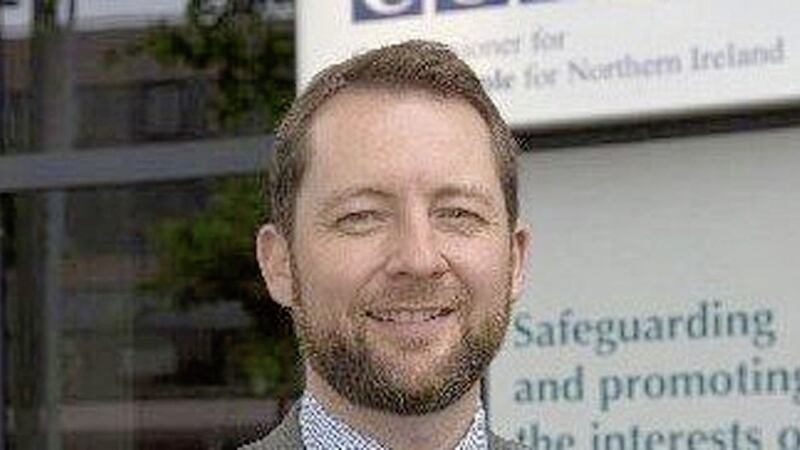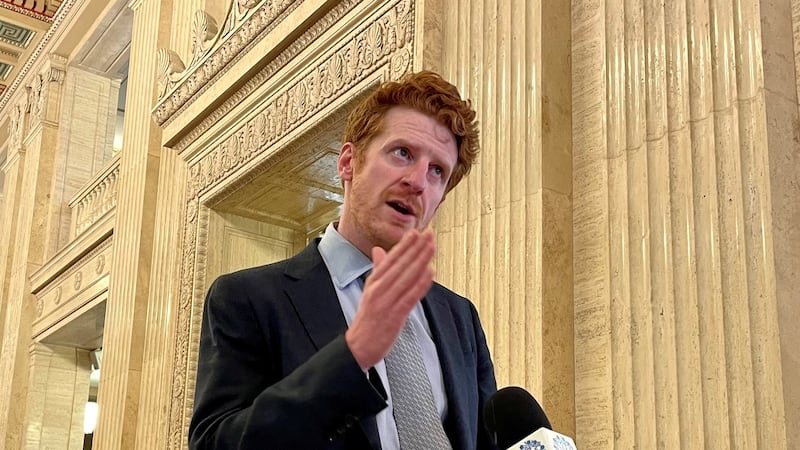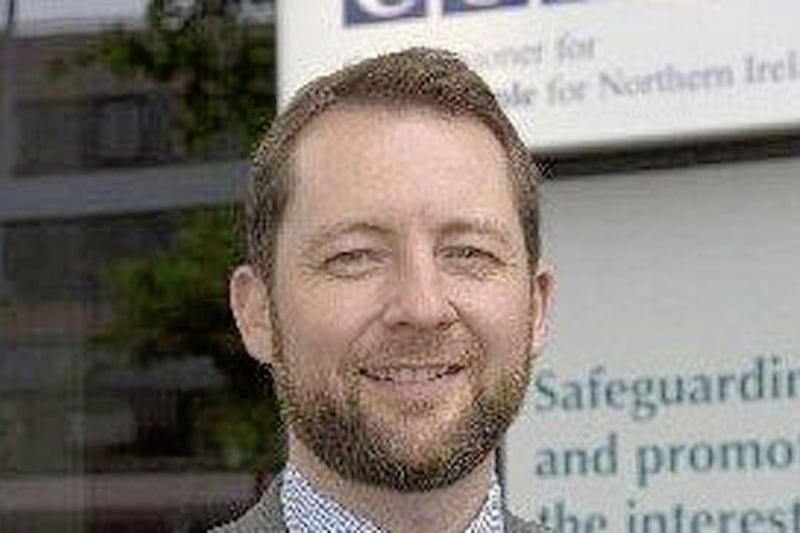THE Commissioner for Older People has challenged health minister Robin Swann to explain why he did not to introduce universal testing for Covid-19 in care homes - insisting it is the best way to protect the most vulnerable.
Eddie Lynch also said he is not "assured" that the existing strategy goes far enough in preventing the spread of the disease across the sector, where 45 per cent of Northern Ireland's coronavirus-related deaths have occurred.
His comments come after First Minister Arlene Foster and Deputy First Minister Michelle O'Neill jointly endorsed the roll-out of testing across all care homes for residents and staff.
In Monday’s Irish News, Ms O’Neill expressed her frustration with her lack of "autonomy" in areas such as community testing, which comes under the domain of the Department of Health.
Speaking to the The Irish News last night, Mr Lynch welcomed the "commitment" given by the Stormont leaders but warned it was time for "action, not words" to protect vulnerable residents and frontline care home workers.
The commissoner also said he was "deeply disturbed" about a lack of information around care home deaths published by the health service, with data only emerging over the past month through the Northern Ireland Research and Statistics Agency (NISRA).
Mr Swann announced an "intensive" programme of testing and staff support for the sector earlier this week but stopped short of universal testing.
The Ambulance Service has started to provide a mobile testing service, while up to 40 nurses from health trusts are being deployed to homes to support the measure.
But Mr Lynch insisted the department's response doesn't go far enough and called for "extra capacity" for testing to be re-directed towards homes, where the "battle" against Covid-19 is now focused.
He said many residents in care homes have dementia and "can't communicate" if they're unwell and therefore require swabbing for Covid-19.
"I've been publicly calling for universal testing for three weeks but behind the scenes I've been calling for it a lot longer and have met with Mr Swann as well as the First and Deputy First Ministers," he said.
" know testing is not a magic bullet, it's not 100 per cent guaranteed, but I wasn't assured that the strategy currently being rolled out is giving the maximum protection to staff and residents in care homes.
"We have already had issues around PPE in care homes and this has broadly been resolved for now. However, the issue of testing has clearly a key role in trying to identify and prevent the spread of disease.
"At the minute, the department has been carrying out testing for a number of weeks, with 25 per cent of residents tested, but the focus has been on homes where there is an outbreak.
"For me, the residents and the workers in the Covid-free homes have a right to testing and to try to prevent Covid entering the homes in the first place.
"While I welcome the commitment from the First and Deputy First Ministers to universal testing, what we need now is action and not words.
"It does fall with the health minister now to take further steps with testing and to introduce a rolling programme of universal testing to give everyone in a care home the best possible chance of getting through this pandemic.
"This is such a worrying time for families of residents. If we accept that people in care homes are at most risk, which figures confirm, then they need to be number one priority for the Department of Health in relation to testing. Therefore any capacity in system should be targeted."
He added that he had asked the department to "clearly outline" what the alternative strategy is to protect the residents and workers.
"I'm not clear what that is at this stage. I haven't been assured the strategy being adopted is as good as or better than a policy of universal testing."
British health secretary Matt Hancock yesterday pledged that all residents and staff in care homes in England will have been tested by early June.
The Irish News asked Mr Swann to respond to the concerns raised by the commissioner.
A department spokesman said: "The minister announced plans this week for significant expansion of testing... to provide additional capability to this testing programme. He also stressed that whilst there may be differences in terminology everyone shares the same fundamental objective to save lives and protect all staff, residents and patients across all Health and Social Care settings.
"Testing has a key role to play in protecting residents and staff in our care homes, however testing does not provide a cure for the virus. Testing is part of a package of measures which are being implemented across all homes, as outlined in detail by the minister and Chief Medical Officer this week."
The spokesman added that while care homes are a "top priority for minister, the department and all HSC organisations", testing continues to be required in other health and care settings also.
"This includes testing for hospital in-patients including those requiring critical care, testing for health and social care staff and other key workers, and also surveillance testing in the community," he added.
"Testing capacity will be a vital component of the contact tracing programme - ‘test, track, isolate and support’ - which will be expanded in the coming weeks."
SAGE, the Scientific Advisory Group on Emergencies, is expected to provide further advice on expansion of testing, will help inform the department's next steps, according to the spokesman.




